About Us
The WCU Center for STEM Inclusion (CSI) was established in 2020. Our mission is to foster a comprehensive STEM workforce development and education ecosystem in southeastern PA so that we can help students with untapped potential pursue STEM careers. The CSI aims to connect the expertise of stakeholders in secondary and higher education, industry, government, and education-focused non-profits, to equip students from diverse backgrounds, including low socioeconomic status (low-SES) and historically excluded groups (e.g., BIPOC), with resources and support for STEM careers.
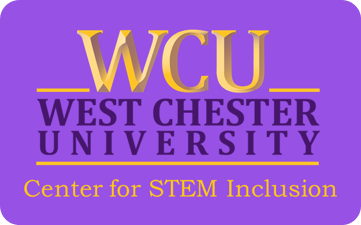
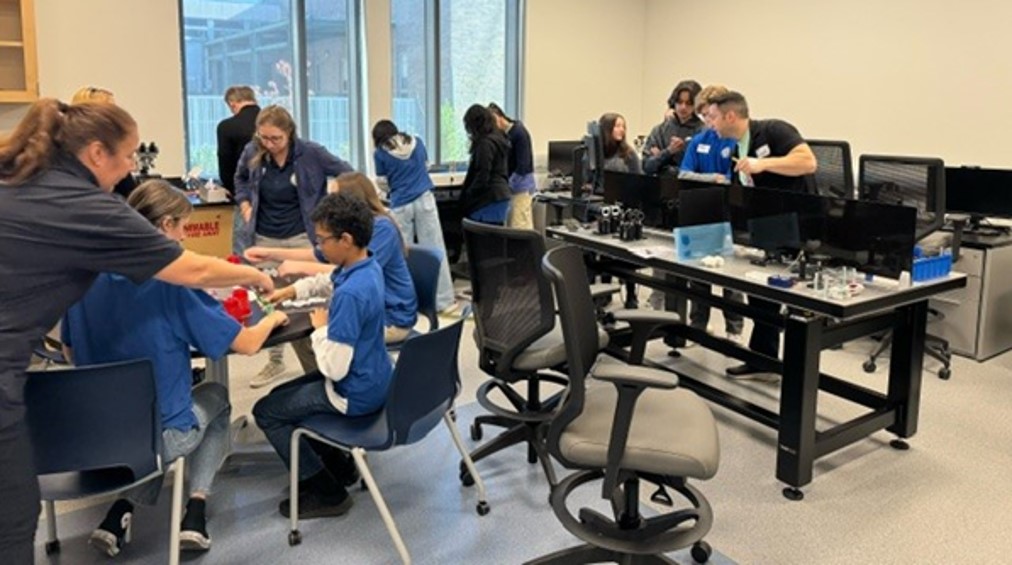
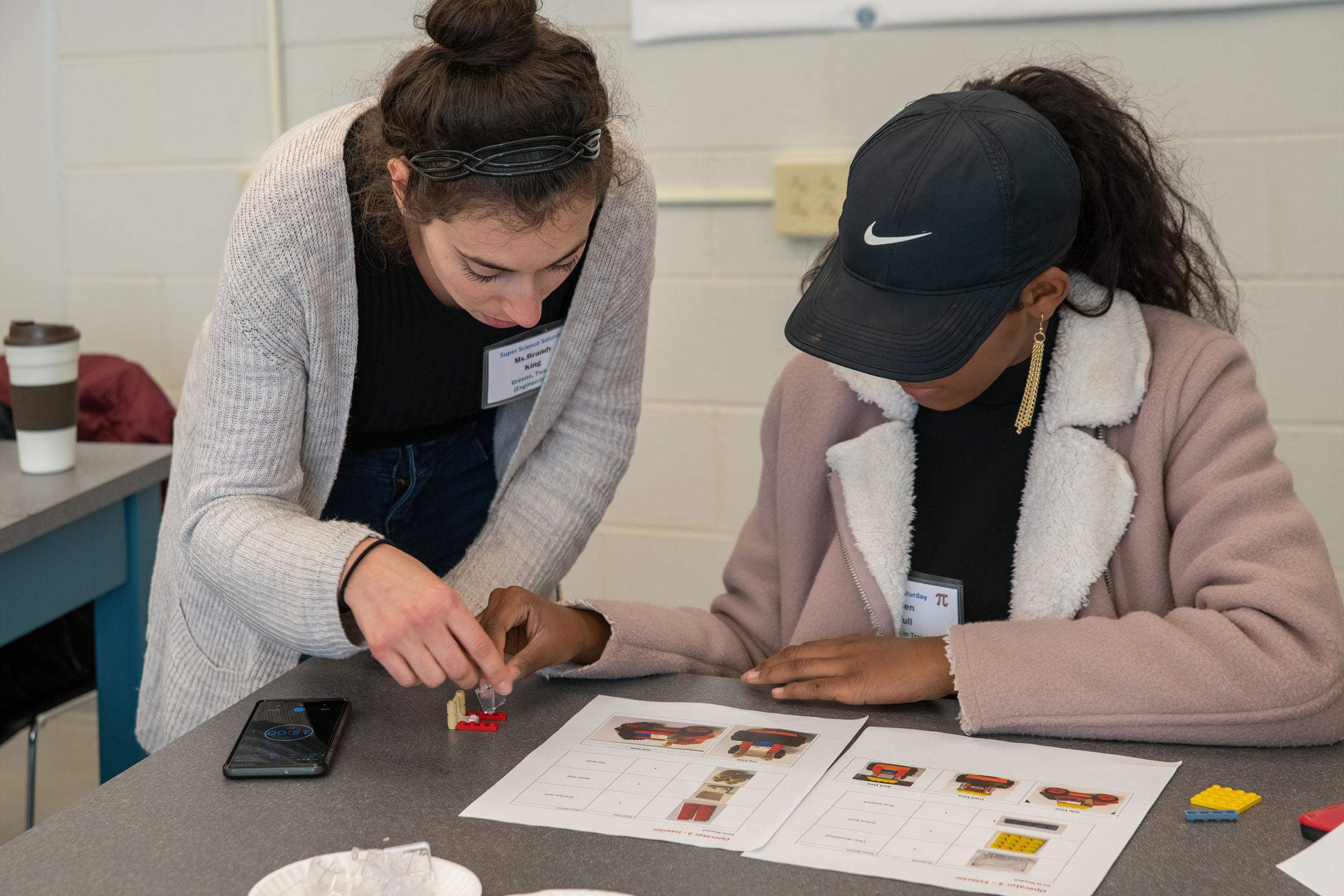
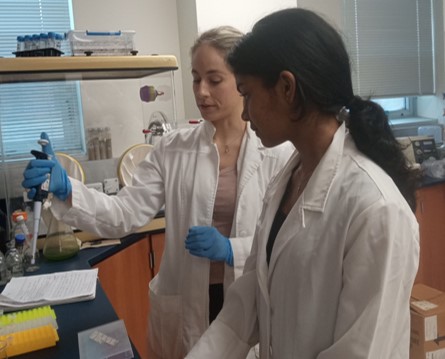
Increasing students' interest in STEM is just the beginning. Starting in elementary school, and continuing through high school, our program offers workforce education and hands-on training in high-demand, high-paying fields such as computer science, computer engineering, semiconductor manufacturing, biomedical engineering, and quantum information. Students who choose to attend WCU will have access to additional mechanisms to support their personal, academic, and career growth. Our four focus areas create a comprehensive support network that engages the students from elementary school to a career in STEM:
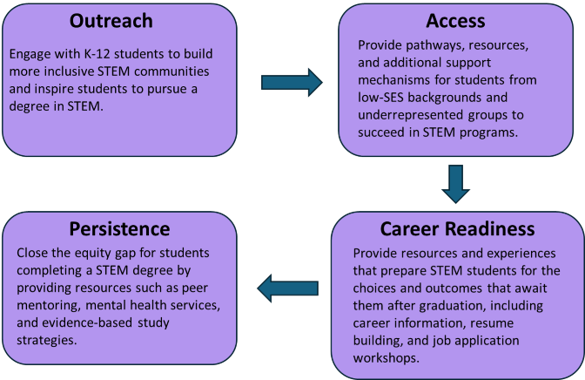
Local Partnerships
The CSI actively partners with local non-profits and higher education institutions to support our K-12 outreach program and to offer a variety of pathways to a career in STEM. By partnering with non-profits such as the Young Men and Women in Charge, HEIGHTS Philadelphia, and Chester County Futures, the CSI engages with thousands of low-income students from urban and rural backgrounds within a 50-mile radius of WCU. The CSI provides additional STEM enrichment and Workforce development opportunities lead by WCU STEM faculty and undergraduates. In addition, we partnered with leading higher education institutions such as the University of Pennsylvania and the University of Delaware to create new accelerated master's programs in STEM fields and provide unique, hands-on, immersive activities in state-of-the-art research facilities.


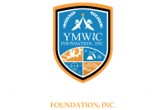


The CSI’s Focus Areas are Underpinned by Three Key Principles
Longitudinal Support - While single events and “science days” can pique a student’s interest in STEM, our programming goes a step further by providing a variety of workshops and programs that range from one-day events to week-long camps and are targeted for different age groups such that we can work with students over there middle and high school tenure. Once at WCU, these students will find support before their STEM journey begins with bridge programs, tutoring and mentoring. In addition, students will have opportunities for paid research positions and lab assistant positions within their STEM discipline. Students will also get career planning guidance. Sustained mentoring, enrichment and support are critical for retaining a student's interest in pursuing a STEM career.
Exposure to Modern STEM Experiences - It is hard for students to decide on a STEM career when they have little exposure to modern STEM areas and research techniques. We provide our students with state–of–the–art experiences in up-and-coming fields such as nanoscience, biomedical engineering, augmented reality, semiconductor manufacturing, and augmented reality. Our faculty and industry and academic partners are dedicated to providing students with access to research-grade equipment and exposure to emerging fields of societal importance with in-depth workshops and paid summer/semester-long research experiences.
Workforce Education -
Center for STEM Inclusion Interaction Model
The interaction of the CSI’s four focus areas with local schools, non-profits, industry, and other institutions of higher education can be summarized in the chart below.
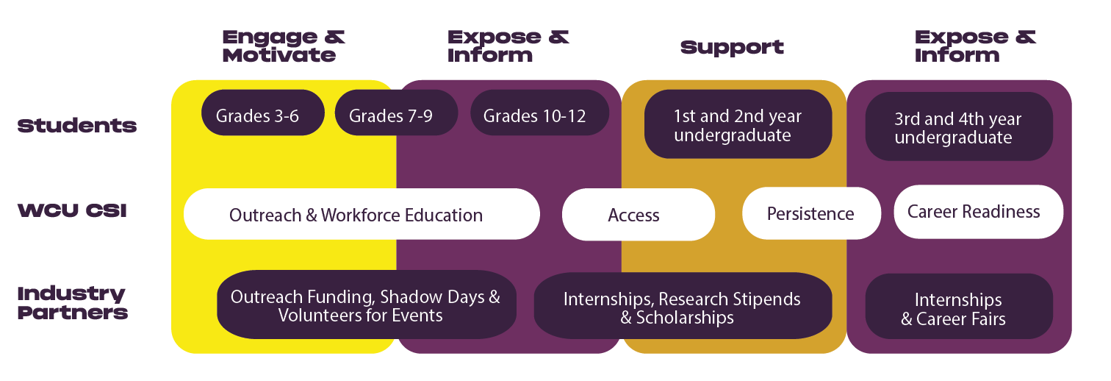
The initial stage of student support is engagement and motivation in their elementary and early middle school years. Then, we expose students to more modern STEM areas such as nanomaterial-based drug delivery, quantum information science and semiconductor manufacturing and inform them about the modern STEM workforce and the educational and training pathways that can prepare them. After high school, we seek to support students in their transition into their early undergraduate careers, where attrition in STEM majors is the highest. Then we show the students career paths tailored to their majors and provide support with graduate school and job applications and resume writing/interview skills. Local industry partners can play a pivotal role in this model by providing not only financial support but additional support such as volunteers for outreach events, internship opportunities, and participating in career fairs at WCU. With partner support, we can ensure that the future STEM workforce is diverse and filled with highly qualified and trained people from all backgrounds.
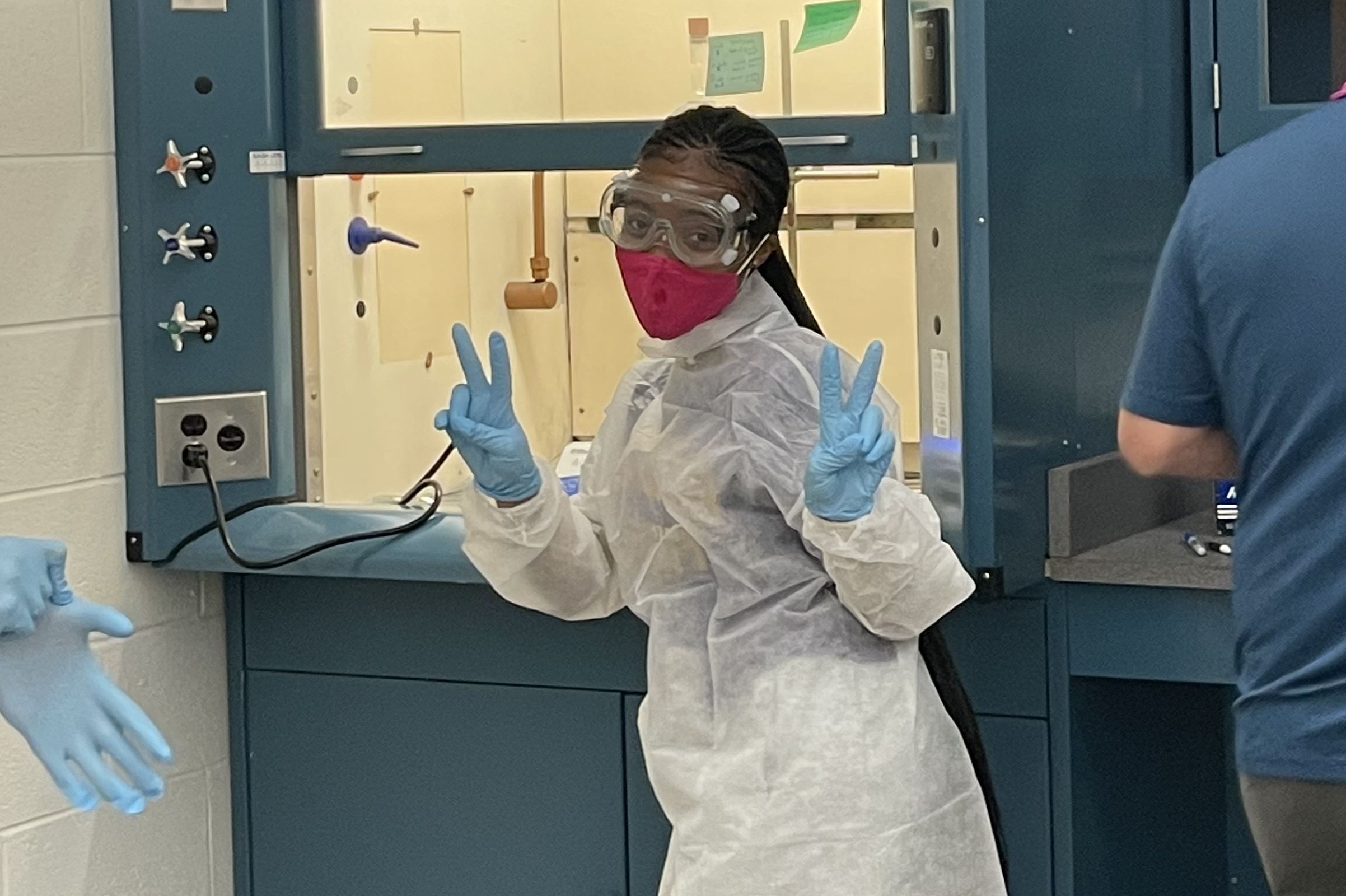
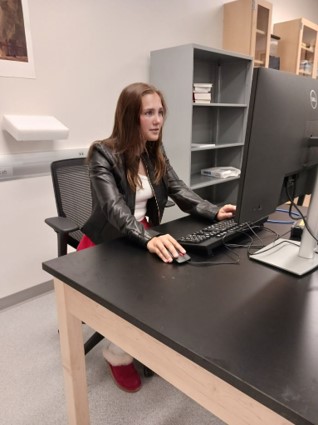
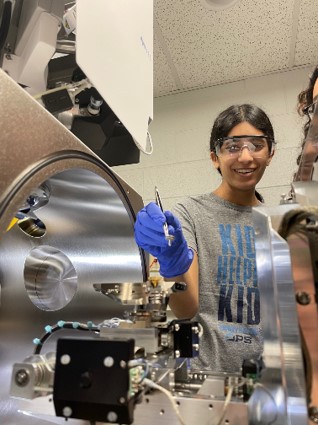
Center for STEM Inclusion Leadership Team
Jessica O’Shaughnessy - Dean of the College of Sciences and Mathematics
Brandon Mitchell - Director of the Center for STEM Inclusion and Chair of the WCU STEM Outreach Committee
Eric Sweet - Science of Learning and Outreach Coordinator
Abbie Ganas - Assistant Chair of the WCU STEM Outreach Committee
Center for STEM Inclusion External Advisory Board
Homi Kapadia - Deloitte Executive (Retired)
Yassmin Gramian - Former Pennsylvania Secretary of Transportation
Richard Roberts III - CEO of the Young Men & Women in Charge Foundation
George Fiore - Executive Director at Chester County Intermediate Unit
Tim Phelps - Executive Director of the Transportation Management Association of Chester County
Ray Melleady - President, Ster Seating
Jeremy Heyman - STEM Pathways Director, HEIGHTS Philadelphia
Mary Williams - Director of Community Engagement, Chester County Futures
Tim Kinsella - Nondestructive Testing Engineer (Retired)
